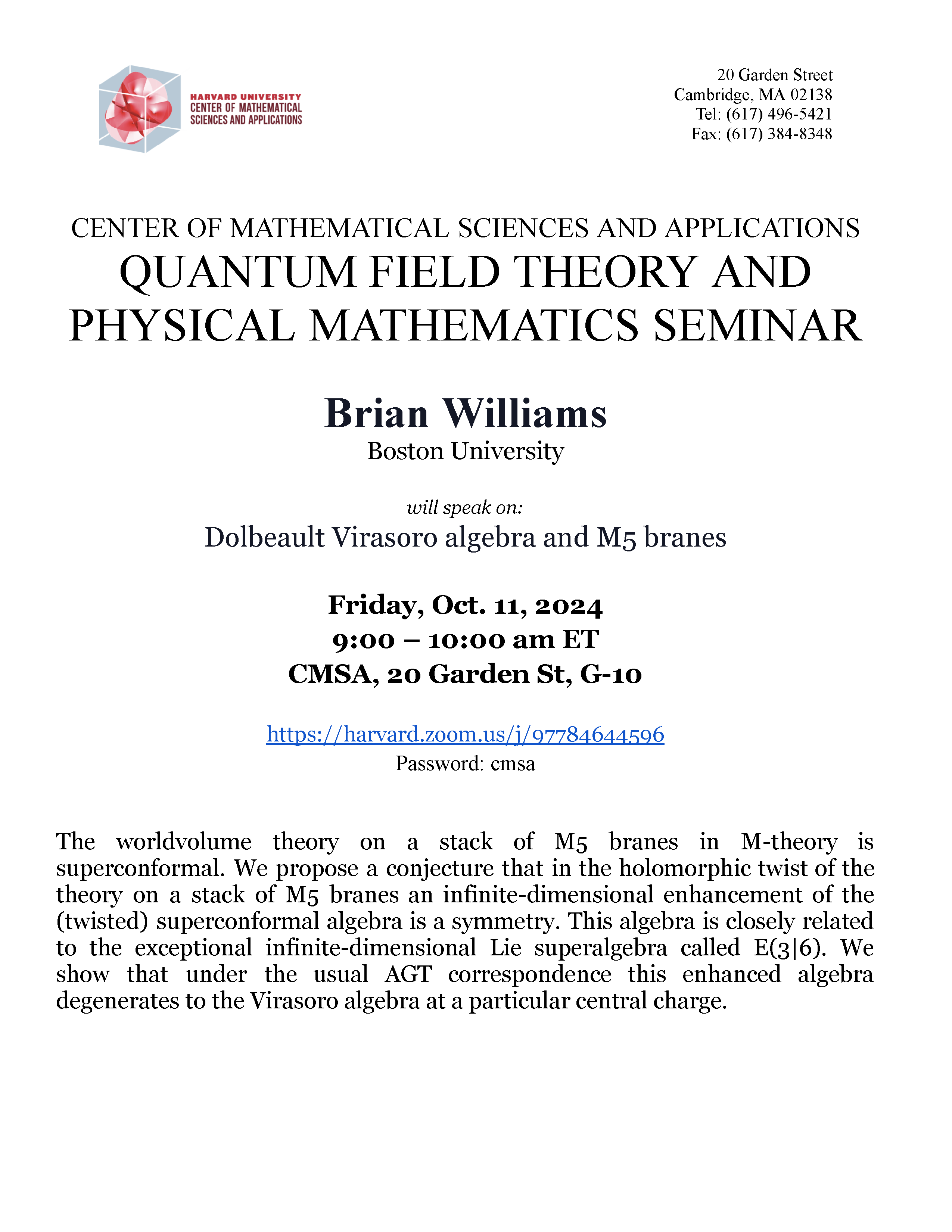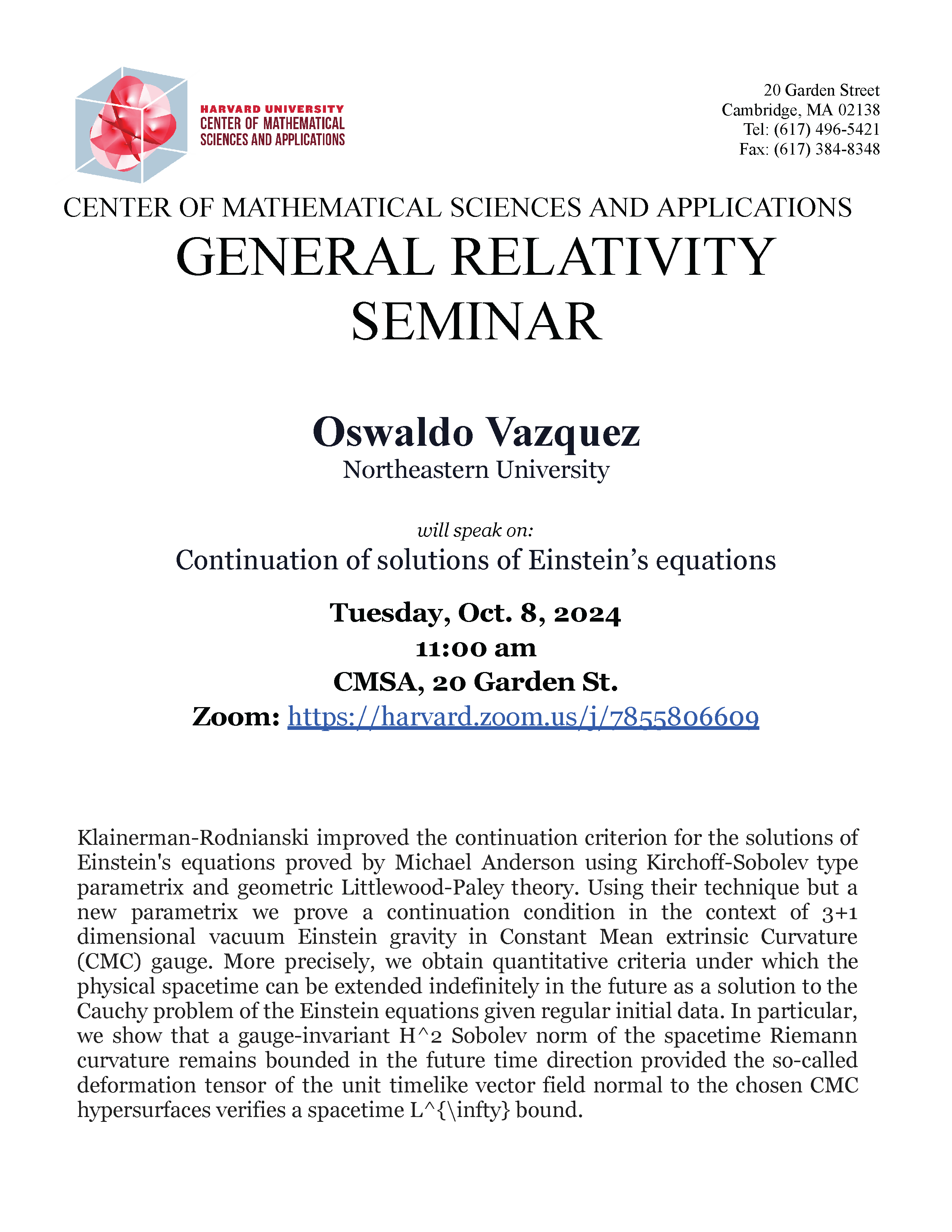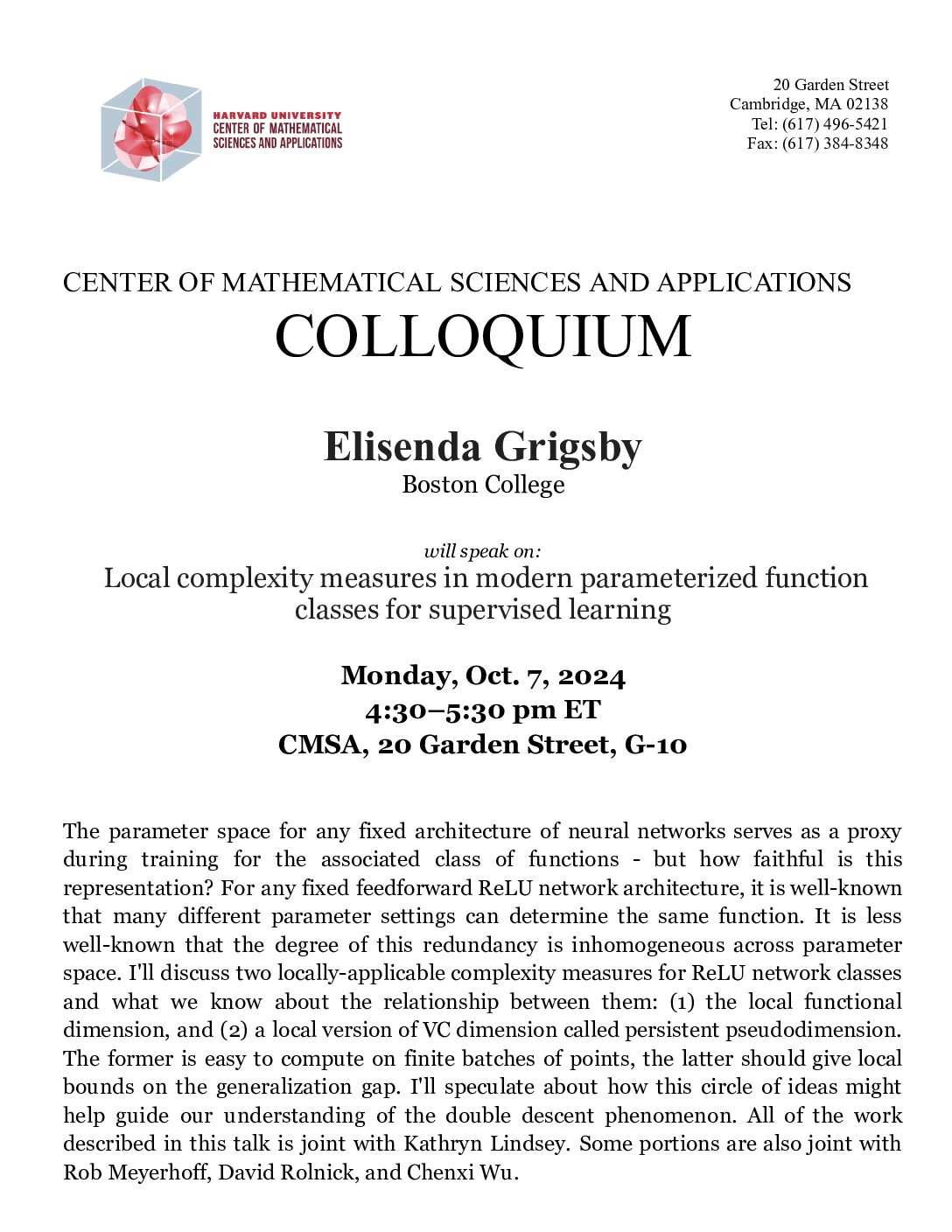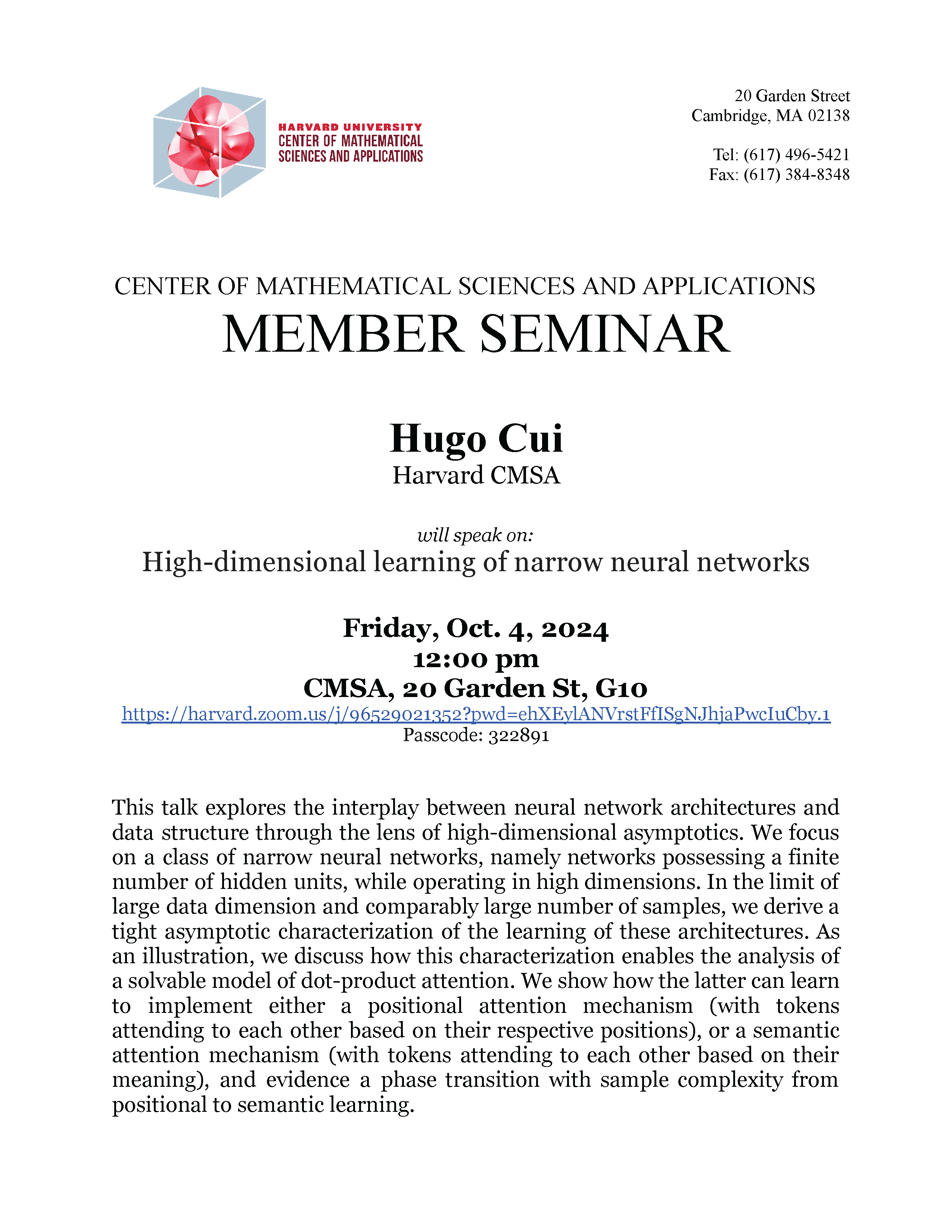Math and Machine Learning Program Discussion
CMSA Room G10 CMSA, 20 Garden Street, Cambridge, MA, United StatesMath and Machine Learning Program Discussion
Math and Machine Learning Program Discussion

Member Seminar Speaker: Keyou Zeng Title: Scattering Amplitude from a Twistor Point of View Abstract: Scattering amplitude is a key quantity in quantum field theory. Although challenging to compute at higher loops and for large particle numbers, physicists have developed various tools to gain a deeper understanding of amplitudes. In this seminar, I will introduce […]
Math and Machine Learning Program Discussion

Quantum Field Theory and Physical Mathematics Seminar Speaker: Brian Williams, Boston University Title: Dolbeault Virasoro algebra and M5 branes Abstract: The worldvolume theory on a stack of M5 branes in M-theory is superconformal. We propose a conjecture that in the holomorphic twist of the theory on a stack of M5 branes an infinite-dimensional enhancement of […]
Topics in Deep Learning Theory Eli Grigsby
Math and Machine Learning Program Discussion
Topics in Deep Learning Theory Eli Grigsby

General Relativity Seminar Speaker: Oswaldo Vazquez, Northeastern University Title: Continuation of solutions of Einstein's equations Abstract: Klainerman-Rodnianski improved the continuation criterion for the solutions of Einstein's equations proved by Michael Anderson using Kirchoff-Sobolev type parametrix and geometric Littlewood-Paley theory. Using their technique but a new parametrix we prove a continuation condition in the context of […]

Colloquium Speaker: Elisenda Grigsby, Boston College Title: Local complexity measures in modern parameterized function classes for supervised learning Abstract: The parameter space for any fixed architecture of neural networks serves as a proxy during training for the associated class of functions - but how faithful is this representation? For any fixed feedforward ReLU network architecture, it […]
Math and Machine Learning Program Discussion

Member Seminar Speaker: Hugo Cui, CMSA Title: High-dimensional learning of narrow neural networks Abstract: This talk explores the interplay between neural network architectures and data structure through the lens of high-dimensional asymptotics. We focus on a class of narrow neural networks, namely networks possessing a finite number of hidden units, while operating in high dimensions. In the […]
Math and Machine Learning Program Discussion